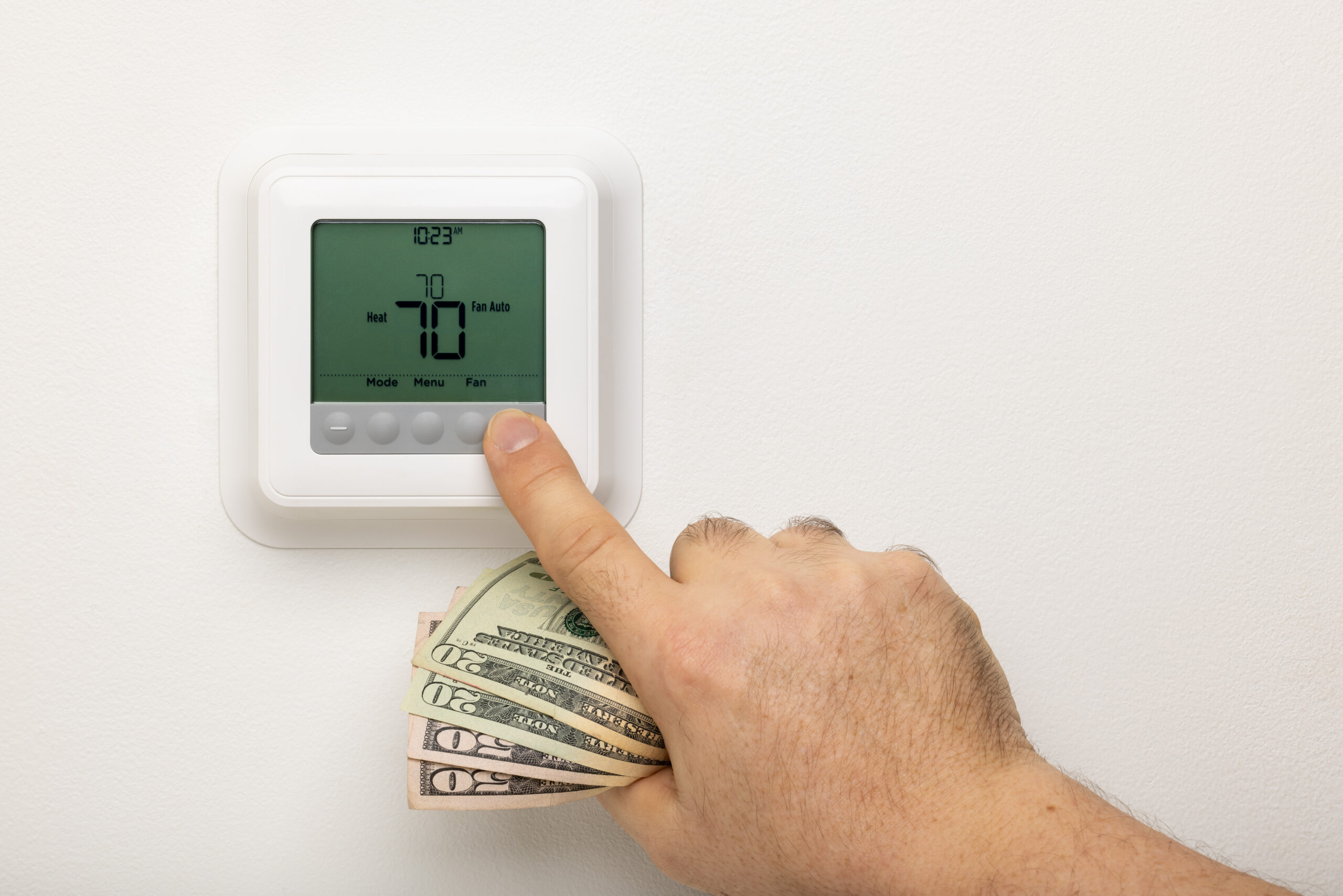
The Cost of Ignoring HVAC Maintenance
Your HVAC system is the unsung hero of your home, keeping you cool in the summer and warm in the winter. However, what happens when we take it for granted and skip regular upkeep? The truth is, neglecting HVAC preventative maintenance can lead to a cascade of problems that cost you more in the long run. From higher energy bills to the risk of costly repairs, skipping maintenance isn’t just inconvenient—it can be expensive. Higher Energy Bills One of the first signs of an HVAC system in need of maintenance is an increase in your energy bills. When your system isn’t running efficiently, it has to work harder to heat or cool your home, which consumes more energy. Dirty filters, clogged ducts, and lack of lubrication can all contribute to poor performance. Over time, these inefficiencies can cause your utility costs to skyrocket. By staying on top of residential HVAC maintenance, you ensure your system runs smoothly and keeps energy costs in check. More Frequent and Expensive Repairs Another costly result of neglecting HVAC maintenance is the increased likelihood of needing expensive repairs. Small issues, like a worn-out filter or a refrigerant leak, can turn into major problems if left unchecked. For example, a neglected system might experience a full breakdown or even cause irreversible damage to components like the compressor or condenser coils. These repairs can be costly, especially if you’re looking at the possibility of replacing major parts. Regular HVAC services can identify minor issues before they escalate, helping you avoid a hefty repair bill down the road. Shortened System Lifespan Your HVAC system isn’t something you want to replace too soon. With proper care, a well-maintained system can last between 15 and 20 years. However, neglecting maintenance can drastically shorten its lifespan. When parts aren’t cleaned, lubricated, or replaced as needed, they wear out much faster. Instead of getting the most out of your investment, you may find yourself needing a costly replacement much sooner than expected. Residential HVAC maintenance isn’t just about keeping your system running; it’s about extending its lifespan and saving you money on premature replacements. Reduced Indoor Air Quality and Health Risks Your HVAC system doesn’t just affect the temperature of your home—it also plays a major role in maintaining indoor air quality. When filters and ducts get clogged with dust, dirt, and debris, those particles are circulated throughout your home, potentially triggering allergies, asthma, or other respiratory issues. Regular maintenance, like cleaning ducts and replacing filters, can help improve the air you breathe and ensure your system is working as it should to keep your environment healthy and comfortable. Safety Concerns (For Heating Systems) If you have a heating system that relies on gas or oil, ignoring HVAC preventative maintenance can pose serious safety risks. Over time, gas connections can deteriorate, leading to gas leaks, and carbon monoxide can build up—both of which are potentially life-threatening. Scheduling regular inspections and maintenance will help ensure your heating system is safe to use and that you’re not unknowingly putting your home or family at risk. Don’t Skip HVAC Maintenance Ignoring HVAC preventative maintenance might seem like a way to save time or money, but in the end, it costs you more. From higher energy bills to the risk of dangerous breakdowns, the price of neglecting your system can be substantial. Protect your home, your wallet, and your family by staying on top of your HVAC services. Not sure where to start? PRK Services offers comprehensive residential HVAC maintenance to keep your system running efficiently and reliably all year long. Don’t wait for problems to arise—schedule a maintenance check today and avoid the hidden costs of ignoring your HVAC system!
Continue Reading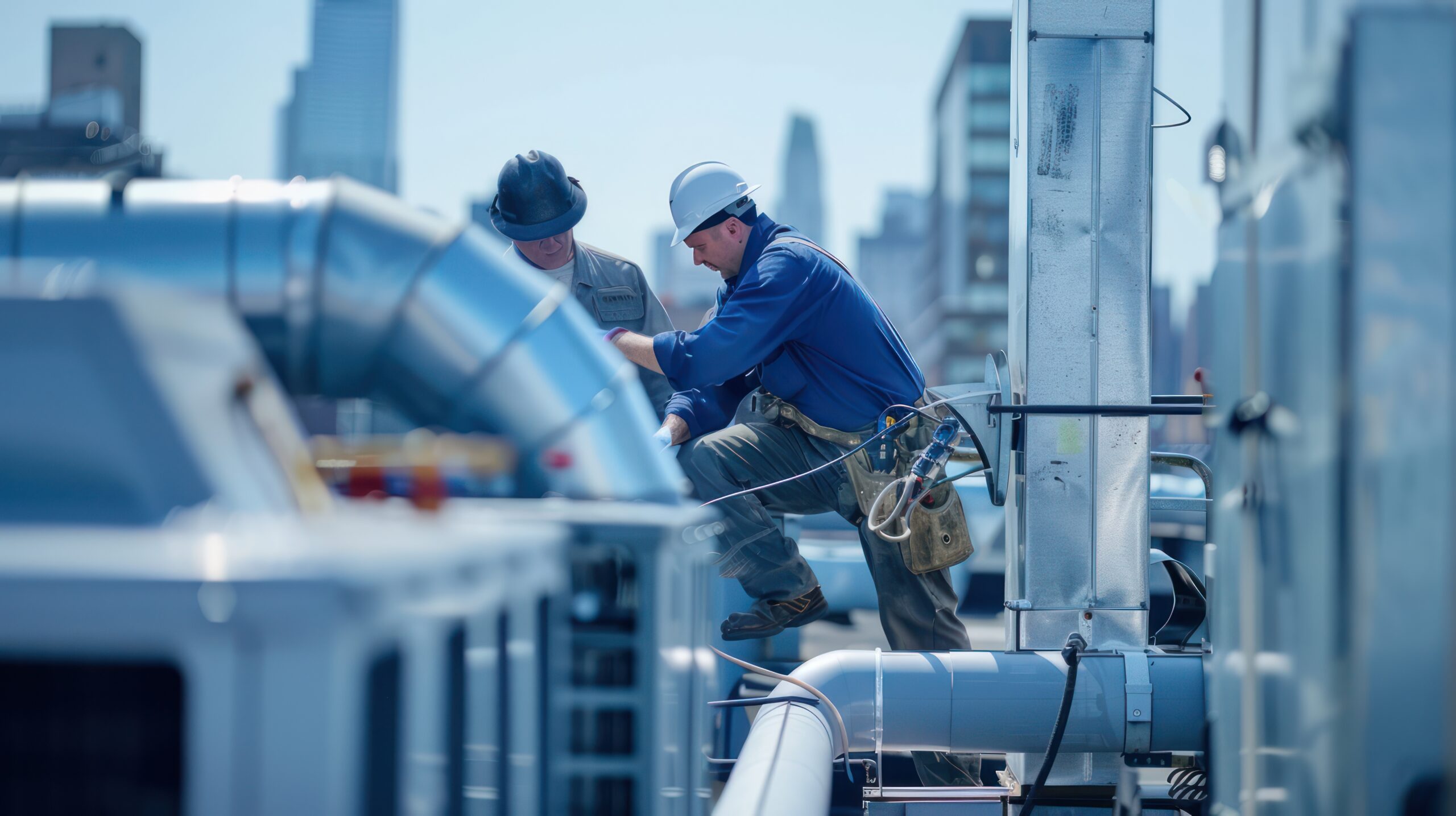
How to Improve Indoor Air Quality in Commercial Buildings
Indoor air quality (IAQ) is often overlooked, but it plays a critical role in the health, comfort, and productivity of employees. For commercial buildings, maintaining high-quality air is essential not only for the well-being of occupants but also for ensuring operational efficiency and meeting regulatory standards. Here are practical steps to improve IAQ in commercial spaces and how PRK Services Inc. can help with your commercial HVAC needs. Why Indoor Air Quality Matters in Commercial Spaces Health Impacts Poor IAQ can lead to respiratory issues, allergies, and conditions like sick-building syndrome. Prolonged exposure to contaminated air can also reduce employee productivity, increase absenteeism, and even cause costly liability issues for businesses. Productivity and Performance Studies show that employees working in spaces with clean, fresh air are more focused, efficient, and less likely to experience fatigue. Improved air quality is directly linked to better cognitive performance, which is crucial for any business. Regulatory and Environmental Concerns Maintaining proper IAQ is also a legal and environmental responsibility. Poor air quality can result in non-compliance with standards set by organizations like OSHA and ASHRAE. Common Indoor Air Quality Challenges in Commercial Buildings Commercial buildings face unique challenges regarding IAQ. Common culprits include inadequate ventilation, buildup of dust and mold, volatile organic compounds (VOCs) from furniture and cleaning products, and outdated HVAC systems. Addressing these issues requires a combination of strategic planning and professional expertise in commercial HVAC services. Strategies to Improve Indoor Air Quality Optimize Ventilation Systems Proper ventilation is the cornerstone of good air quality. Regular maintenance and upgrades to your HVAC system can ensure proper airflow and filtration. PRK Services Inc. specializes in commercial HVAC repair and upgrades to ensure your system operates efficiently and meets industry standards. Incorporate Air Purifiers Investing in advanced air purifiers with HEPA filters can significantly reduce airborne contaminants like dust, allergens, and even harmful microorganisms. Manage Humidity Levels Maintaining the right humidity levels is crucial for preventing mold growth and ensuring comfort. A well-maintained HVAC system plays a vital role in regulating indoor humidity. Our HVAC preventative maintenance services can help you keep these levels in check. Use Low-VOC Materials From paints to cleaning products, choosing low-VOC options can reduce the number of harmful chemicals released into the air. Pair this with regular cleaning to keep surfaces free of dust and other allergens. Schedule Regular HVAC Maintenance Your HVAC system is the backbone of IAQ. Regular HVAC preventative maintenance ensures filters are clean, components are functioning properly, and air circulation remains efficient. At PRK Services Inc., we offer tailored commercial HVAC services to meet the unique needs of your building. Add Indoor Greenery Indoor plants not only beautify the space but also help purify the air by absorbing toxins and releasing oxygen. They’re a natural, cost-effective way to enhance IAQ. Improving indoor air quality in commercial buildings requires a proactive approach. From optimizing ventilation to investing in commercial HVAC repair, every step contributes to a healthier, more productive environment for your team. At PRK Services Inc., we’re committed to helping you breathe easier. With our comprehensive commercial HVAC services, we ensure your system operates at peak performance so you can focus on what matters most—your business. Contact us today to learn how we can transform your indoor air quality!
Continue Reading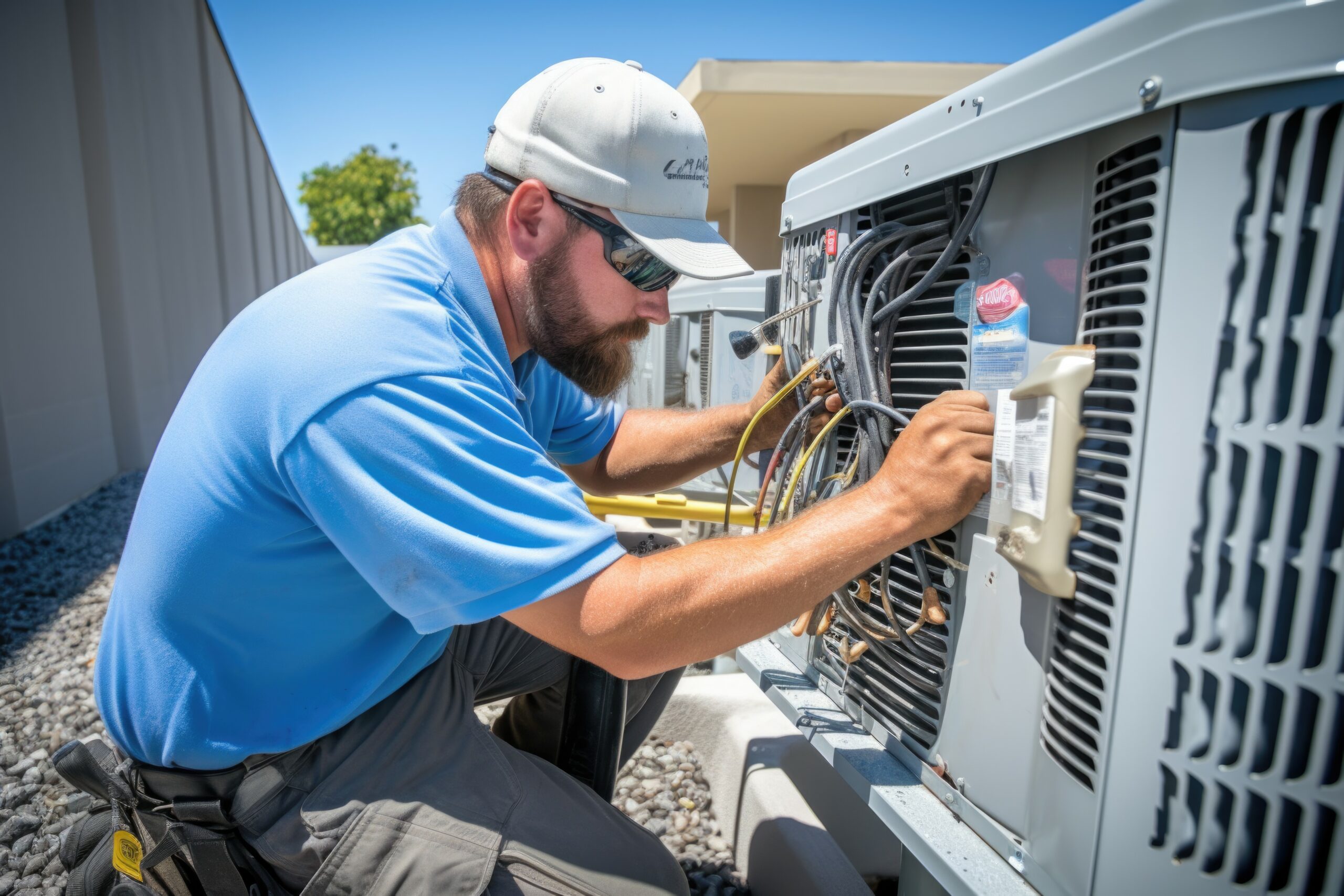
PRK Services Inc.: Your Trusted Partner for HVAC Solutions
When it comes to maintaining comfort and efficiency in your home or business, reliable HVAC services are a necessity. Whether it’s ensuring your home stays cozy in the winter or your office remains cool in the summer, PRK Services Inc. is the partner you can trust. Specializing in residential HVAC, commercial HVAC, and HVAC preventative maintenance, we provide top-notch solutions tailored to your needs. Comprehensive HVAC Services to Meet Every Need Expert HVAC Installation At PRK Services Inc., we excel in professional HVAC installation for homes and businesses. A properly installed system not only delivers optimal performance but also ensures energy efficiency and long-term reliability. Our team works with leading brands to provide state-of-the-art solutions, including eco-friendly options that reduce your carbon footprint and lower energy bills. Residential HVAC Solutions Your home is your sanctuary, and its comfort depends on a well-functioning HVAC system. PRK Services Inc. offers tailored residential HVAC services designed to keep your family comfortable year-round. From efficient heating systems to advanced cooling technologies, we ensure your home is a haven regardless of the season. Commercial HVAC Expertise For businesses, maintaining the right indoor environment is crucial for productivity and customer satisfaction. Our commercial HVAC services are crafted to meet the demands of offices, retail spaces, and industrial facilities. We understand the unique challenges businesses face and provide solutions that balance efficiency, performance, and cost-effectiveness. Reliable HVAC Preventative Maintenance Preventative maintenance is key to extending the lifespan of your HVAC system and avoiding unexpected breakdowns. PRK Services Inc. offers comprehensive HVAC preventative maintenance plans to ensure your system operates at peak efficiency. Regular check-ups and tune-ups minimize costly repairs and keep your system running smoothly. The PRK Advantage Certified Expertise You Can Count On Our technicians are highly trained and certified to handle the latest HVAC systems and technologies. Whether it’s troubleshooting complex issues or installing advanced systems, our team delivers exceptional service with professionalism and precision. Cutting-Edge Technology for Superior Service PRK Services Inc. utilizes modern tools and techniques to provide the best HVAC services in the industry. Our commitment to innovation ensures we stay ahead of industry trends and deliver solutions that are effective and future-proof. Customer-Centric Approach At PRK Services Inc., our customers are at the heart of everything we do. We take the time to understand your needs and deliver solutions that exceed your expectations. Don’t just take our word for it—our long list of satisfied clients speaks to our dedication and quality. A Commitment to Sustainability As the world moves toward greener solutions, PRK Services Inc. is proud to offer energy-efficient and environmentally friendly HVAC services. Our sustainable practices and eco-conscious products help reduce energy consumption while maintaining comfort and reliability. Why PRK Services Inc. Stands Out When you choose PRK Services Inc., you’re selecting a partner with a proven track record of excellence in residential and commercial HVAC. Our expertise, reliability, and commitment to quality set us apart in the industry. Don’t settle for anything less when it comes to your HVAC needs. Contact PRK Services Inc. today to experience the best HVAC installation, maintenance, and services. Let us ensure your comfort and peace of mind all year long.
Continue Reading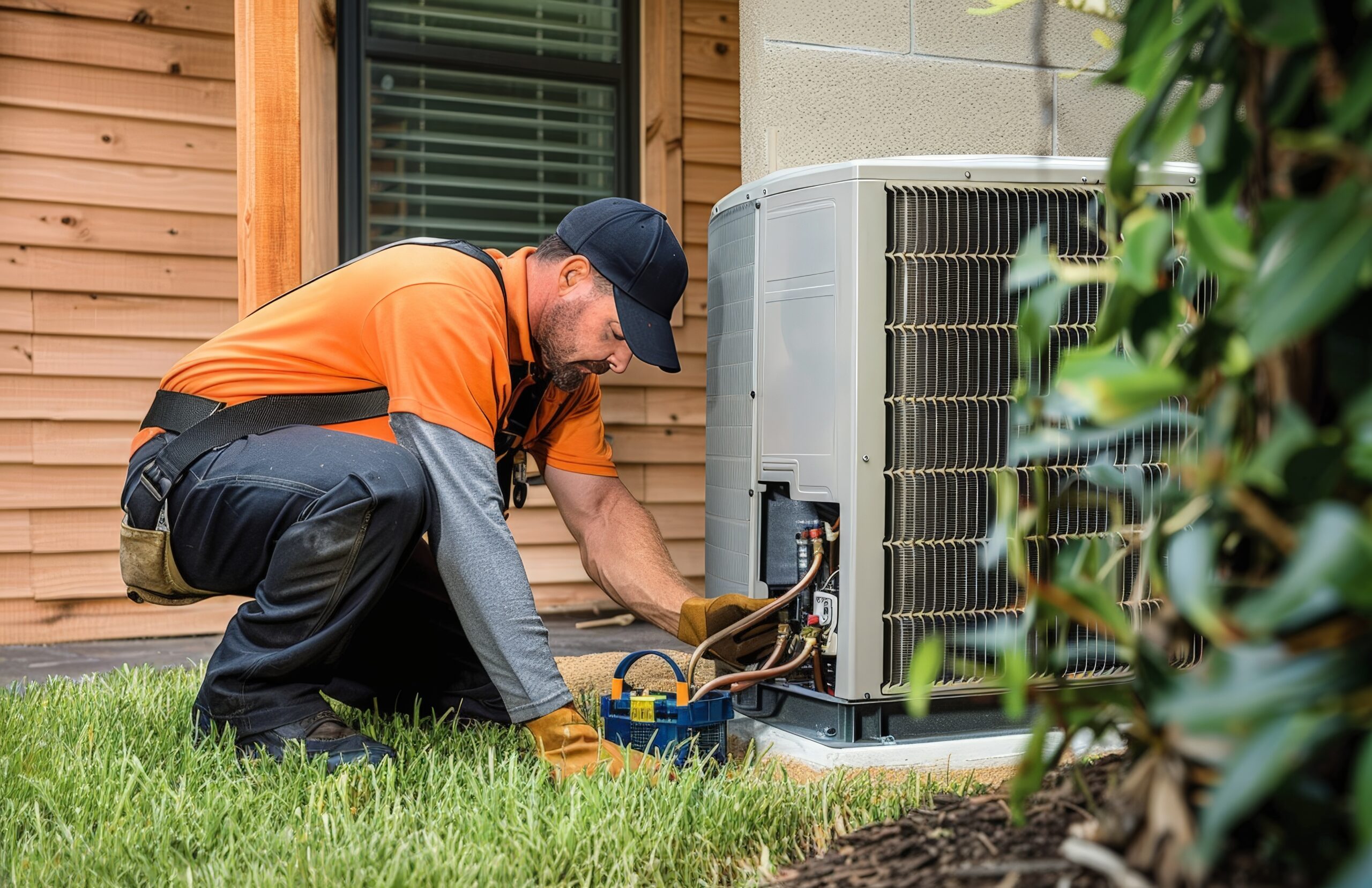
The Chilling Truth: Why Your AC Unit is Freezing Up
As temperatures rise, the last thing you want is for your air conditioner to stop cooling. However, if your AC unit starts blowing warm air or even turns into a block of ice, you’re dealing with a frustrating problem: a frozen AC unit. Not only does this leave your home uncomfortable, but it can also lead to costly repairs if left unchecked. So, why does this happen, and how can you prevent it? Let’s break it down. What Happens When Your AC Freezes Up? When your AC freezes, it’s a sign that something is wrong with the system. You may notice frost or ice building up on the evaporator coils, which restricts airflow and prevents the unit from cooling your home properly. As a result, your system struggles to maintain the desired temperature, leading to poor performance and higher energy bills. Common Causes of a Frozen AC Unit Several factors can cause your AC unit to freeze up, but here are the most common ones: Low Refrigerant Levels Low refrigerant is one of the main culprits behind a frozen AC. When the refrigerant level drops, the evaporator coils become too cold and start forming ice. This is often the result of a leak, which requires professional repair. If you notice warm air coming from your vents or hear a hissing sound, it’s a sign that your refrigerant may be low. Dirty Air Filters Air filters are crucial in maintaining airflow throughout your AC system. Over time, filters can become clogged with dust and debris, causing airflow to slow down. Without proper airflow, the coils can freeze. Regular HVAC tuneups, which include changing air filters, can help prevent this issue. Blocked or Dirty Coils If your evaporator coils are dirty or blocked, they won’t be able to absorb heat properly. This can cause the temperature to drop too low, leading to ice buildup. Keeping your coils clean is an essential part of HVAC preventative maintenance that can extend the life of your system. Poor Airflow (Blower Fan Problems) A malfunctioning blower fan can also result in low airflow, causing the coils to freeze. If the fan is not circulating air properly, the cooling process becomes inefficient, and your AC can freeze up. Thermostat Issues or Incorrect Settings Sometimes, a faulty thermostat or incorrect settings can cause the unit to run too cold. If you’ve accidentally set your thermostat too low, it may lead to the formation of ice on the coils. How to Prevent Your AC from Freezing Up Preventing a frozen AC unit is all about proactive care. Regular HVAC preventative maintenance is key to keeping things running smoothly. Here are some simple steps to keep your system in check: Change air filters regularly to ensure proper airflow. Schedule an HVAC tuneup at least once a year to keep your system in optimal condition. Keep the thermostat at a reasonable setting to avoid freezing your system. Clean the coils and check for any dirt or debris that might obstruct airflow. Ensure your system is properly sized for your home to prevent overworking the unit. What to Do if Your AC Is Already Frozen If your AC unit is already frozen, turn it off and let it thaw. This will help prevent further damage. Once the ice has melted, check the air filters and airflow. If the problem persists, it’s time to call a professional HVAC technician to assess and repair the issue. When to Call a Professional If your AC keeps freezing up, it’s a clear sign that something more serious is wrong. Whether it’s a refrigerant leak, a damaged blower fan, or another complex issue, a professional HVAC technician can diagnose and fix the problem. HVAC tuneups and inspections can help spot potential issues before they turn into costly repairs. Contact PRK Services if you need help with your AC unit.
Continue Reading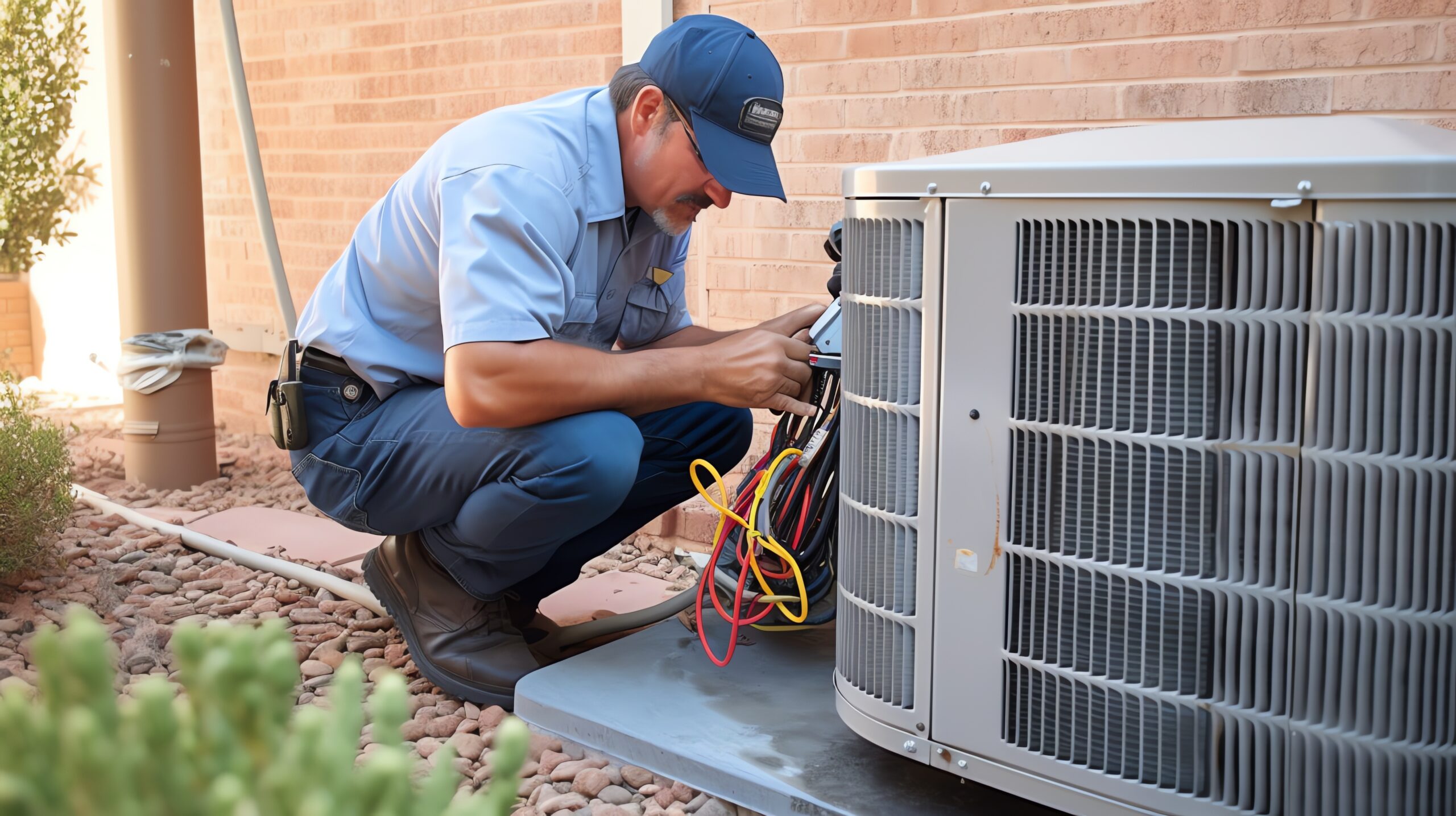
The Importance of Regular HVAC Tune-Ups
Your HVAC system works tirelessly to keep your home comfortable all year round. From blazing summer days to chilly winter nights, it ensures you and your family stay cozy. However, like any machine, your HVAC system needs regular care to keep running smoothly. That’s where an HVAC tune-up comes in! Here’s why HVAC preventative maintenance isn’t just a good idea but an essential part of homeownership. Benefits of Regular HVAC Tune-Ups Enhanced Energy Efficiency An HVAC tune-up helps keep your system running as efficiently as possible. Dust and debris can collect over time, resulting in clogged filters and coils. This issue forces your HVAC unit to work harder. This extra effort requires more energy, which translates to higher utility bills. With regular tune-ups, your system stays clean and optimized, using less energy and saving you money. Extended Lifespan of Equipment Preventative maintenance for your HVAC system can add years to its life. Tune-ups address minor issues before they become big problems that could lead to costly repairs or premature replacement. Just as regular oil changes keep a car running longer, HVAC tune-ups help extend the life of your heating and cooling equipment. Improved Indoor Air Quality Your HVAC system doesn’t just control temperature—it also filters and circulates the air inside your home. When filters are dirty or components are clogged, your system can start circulating allergens, dust, and other particles. Regular HVAC tune-ups improve indoor air quality by keeping these contaminants out, which is especially important for households with allergies or asthma. Consistent Comfort Levels A well-maintained HVAC system provides steady and reliable temperature control. When your system is in good shape, it heats and cools your home evenly, helping prevent those uncomfortable hot or cold spots. Preventative maintenance ensures consistent airflow and comfort throughout your home. Early Detection of Potential Issues One of the biggest advantages of a regular HVAC tune-up is catching small issues before they turn into big headaches. For instance, a minor refrigerant leak can quickly turn into a costly problem if left unchecked. During a tune-up, HVAC technicians can identify and address these small issues early, saving you from surprise breakdowns and major repairs down the road. Environmental Benefits Maintaining an energy-efficient HVAC system isn’t just good for your wallet; it’s also beneficial for the environment. Efficient systems consume less energy, reducing your carbon footprint. Plus, tune-ups can prevent refrigerant leaks that could harm the environment, making HVAC preventative maintenance a green choice. Consequences of Skipping Regular HVAC Tune-Ups Skipping HVAC tune-ups can lead to higher energy bills, increased risk of breakdowns, and even potential health risks from poor indoor air quality. A neglected system has to work harder to perform basic functions, which not only raises your monthly costs but can also wear out the equipment faster. Without preventative maintenance, your HVAC system may need more frequent repairs and could require a replacement sooner than expected. Signs Your HVAC System Needs a Tune-Up If you’re noticing higher energy bills, unusual noises, inconsistent temperatures, or reduced airflow, it may be time for a tune-up. These signs suggest your system is struggling and could benefit from a professional inspection. Investing in regular HVAC tune-ups is one of the smartest steps you can take as a homeowner. Not only will it help your system run more efficiently, but it also ensures your comfort, saves on repair costs, and contributes to a healthier environment. If it’s been a while since your last tune-up, consider scheduling one with PRK Services to keep your home’s HVAC system in top shape year-round.
Continue Reading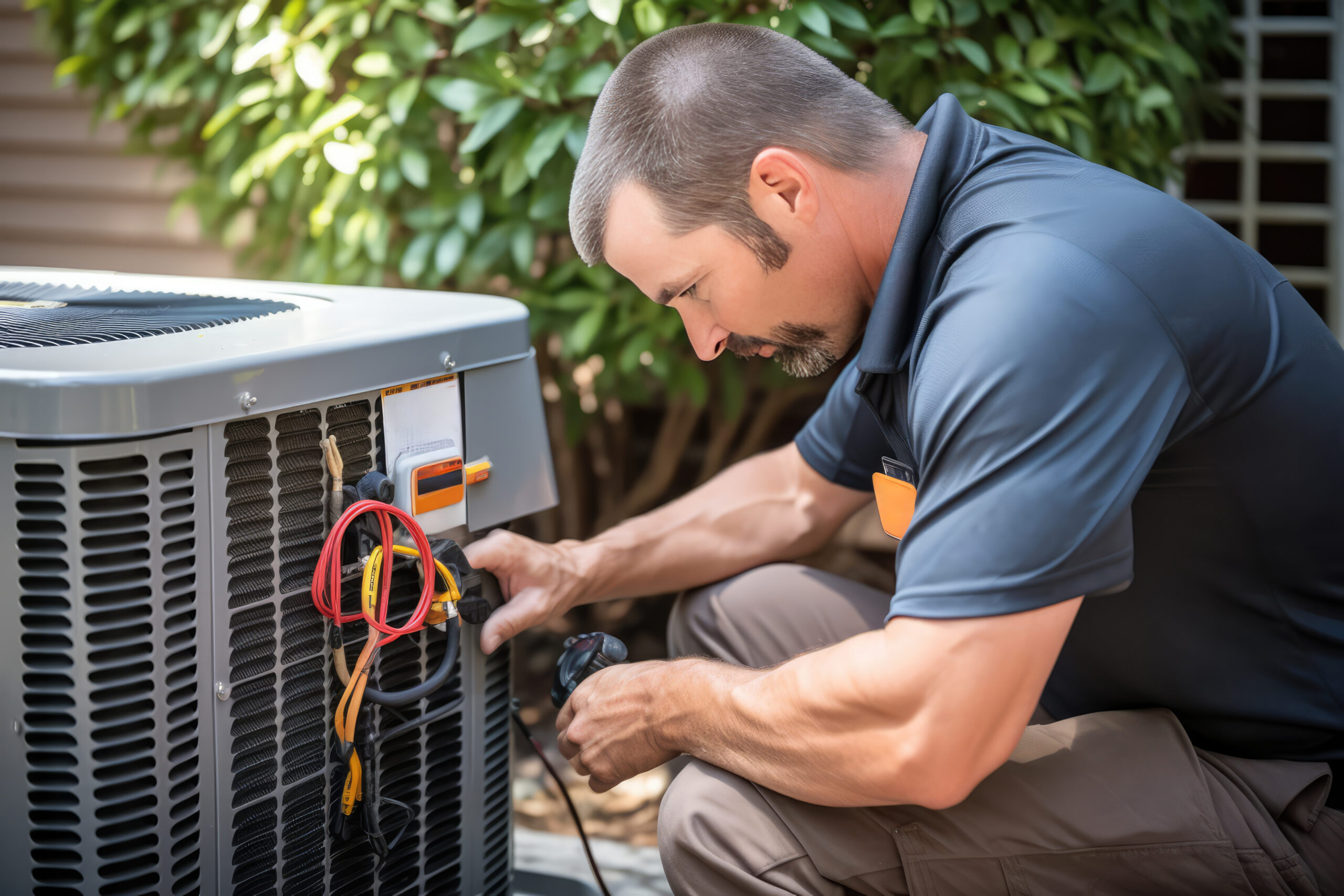
Preparing Your HVAC System for Texas Winter
With winter just around the corner, it’s essential to consider how to prepare your HVAC system for the heating season. Scheduling residential HVAC maintenance is just one way to get your system ready to maintain comfort as the temperature drops. However, HVAC preventative maintenance is only one part of what you should do. The following tips will help you prepare your HVAC system for the Texas winter weather. Schedule Professional Maintenance While you can take some steps yourself, such as replacing your air filter, professional HVAC preventative maintenance is still essential. An HVAC company has the expertise and training to identify potential problems with your unit and complete any necessary repairs to get the system in good working order before the heating season begins. Proper HVAC maintenance keeps systems running efficiently and reduces the risk of breakdowns. Insulate Your AC Lines One step you can perform yourself is insulating your AC lines. This step will help protect your AC lines from damage during cold weather. Inspect the existing insulation and remove any worn-out or damaged insulation. Clean and dry the lines before applying new foam insulation around the pipe. You may need to use tape to hold the foam in place. Make sure the entire line is covered. Cover The Unit In Fall, Not Winter Fall is a time when fallen leaves and other debris can clog the outdoor components of your HVAC system. Covering your unit during this time of year is recommended to keep this debris out. However, once the fall season is over, remove the cover as part of your residential HVAC maintenance. These units can withstand winter weather conditions. Keeping it covered increases the risk of moisture buildup and related damage. Consider A Ventilated Shelter Just because you remove the cover on your outdoor HVAC unit doesn’t mean it doesn’t deserve some protection. You may want to consider installing a ventilated shelter that protects your unit while maintaining airflow. The walls and top of this shelter should be at least three to five inches from the unit and should be removed when spring arrives. Test Your Thermostat Testing your thermostat as part of your HVAC preventative maintenance tells you two things. First, you will need to check if the thermostat turns on your furnace. It should trigger within five minutes of turning it on. Secondly, wait to see if the furnace turns off at the desired temperature. If either of these things doesn’t happen, you should call for service. Change The Filter A change in the seasons is a good time to change your air filter. This essential maintenance task maintains clean air in your home and keeps your system running efficiently, reducing the risk of breakdowns. Check your owner’s manual or ask your maintenance team how often your air filter should be replaced. Preparing your furnace for the winter months is essential to ensure it’s ready to go when the temperature drops. Residential HVAC maintenance is just part of the process. When you’re ready to schedule your HVAC preventative maintenance, contact PRK Services, Inc. to help you get ready for the heating season.
Continue Reading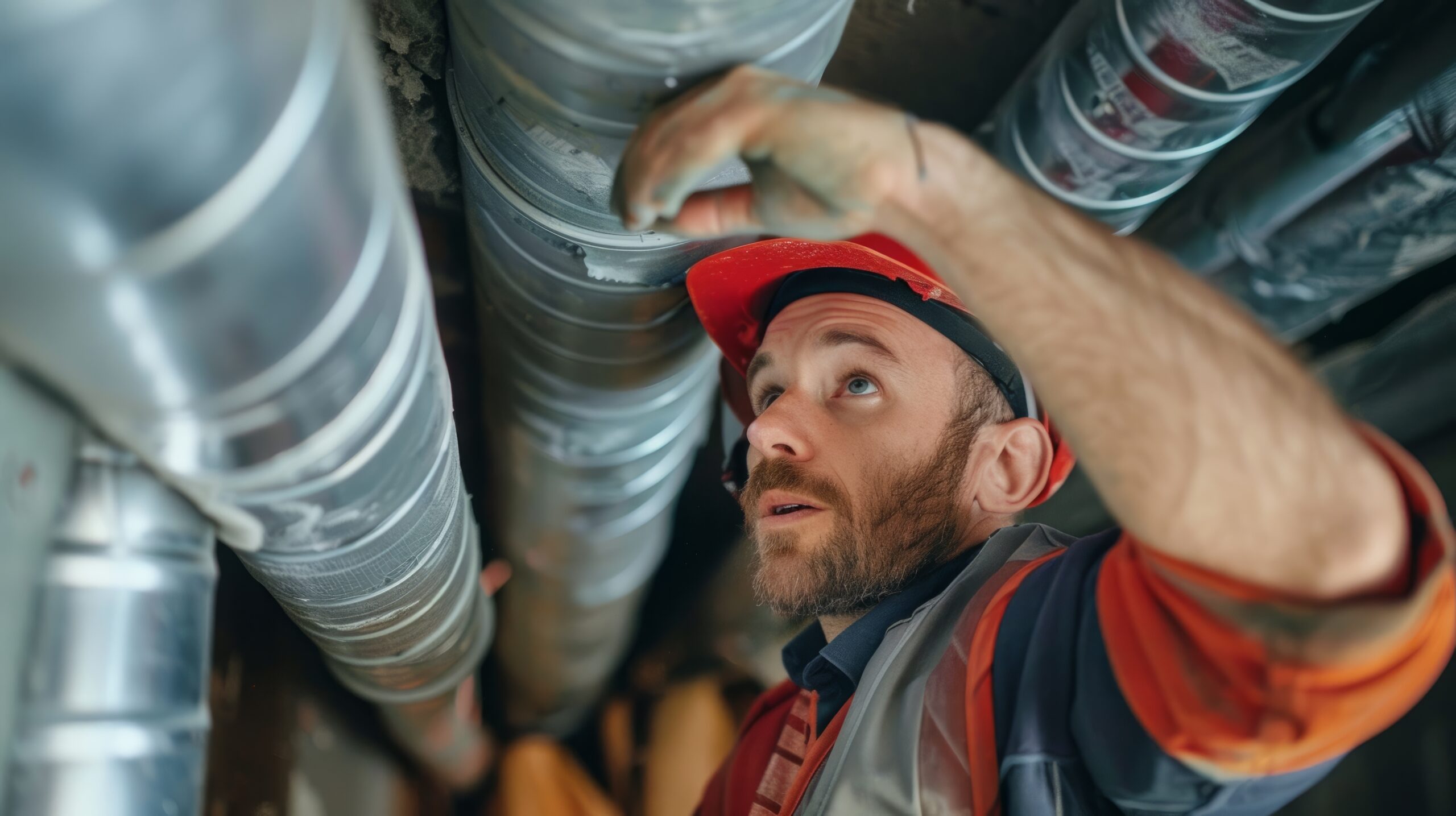
End-of-Season AC Maintenance: Tips to Avoid Winter Surprises
Now that the temperatures are cooler outside, you may notice your HVAC system isn’t running as often as it was during the heat of the summer. There’s no better time than now to perform end-of-season HVAC preventative maintenance to ensure your system is in the best shape possible for the winter. Here are some valuable tips to consider and why you won’t regret doing them. Inspect Air Ducts Many homeowners neglect inspecting their HVAC air ducts because they are out of sight. Air duct damage can present when your home doesn’t cool properly and can be caused by heavy objects creating pressure on them, mold, debris, and more. When you schedule residential HVAC maintenance services, your air ducts will be inspected thoroughly so your system will run efficiently and prevent future breakdowns. Take Care Of Any Strange Noises Pay attention to your HVAC system and call a professional if you notice any unusual noises it’s making. These sounds may include buzzing, humming, hissing, or anything else out of the norm. Not only could these be causing your HVAC system to run inefficiently, but a major breakdown could be coming soon. Have a residential HVAC maintenance professional take a look to prevent unexpected issues and ensure system efficiency. Look Out For Short Cycling Short cycling occurs when your HVAC system turns off shortly after turning on and before it reaches the desired temperature on the thermostat. This cycle is indicative of a serious problem and can add significant wear and tear to your system. Short cycling could be caused by electrical problems, frozen evaporator coils, low refrigerant, or even a clogged air filter. Don’t delay in reaching out to a residential HVAC maintenance professional if you notice short cycling with your unit. PRK Services, Inc. wants to ensure your HVAC system runs efficiently all winter long. Right now, we are offering a complete fall and winter tune-up of your HVAC system for just $69 for up to 2 systems, a small investment that can give you great peace of mind and prevent larger HVAC maintenance bills months later. HVAC preventative maintenance is the key to a healthy unit, so contact us today to schedule a time for our team to come check yours out and get ahead of any issues.
Continue Reading
